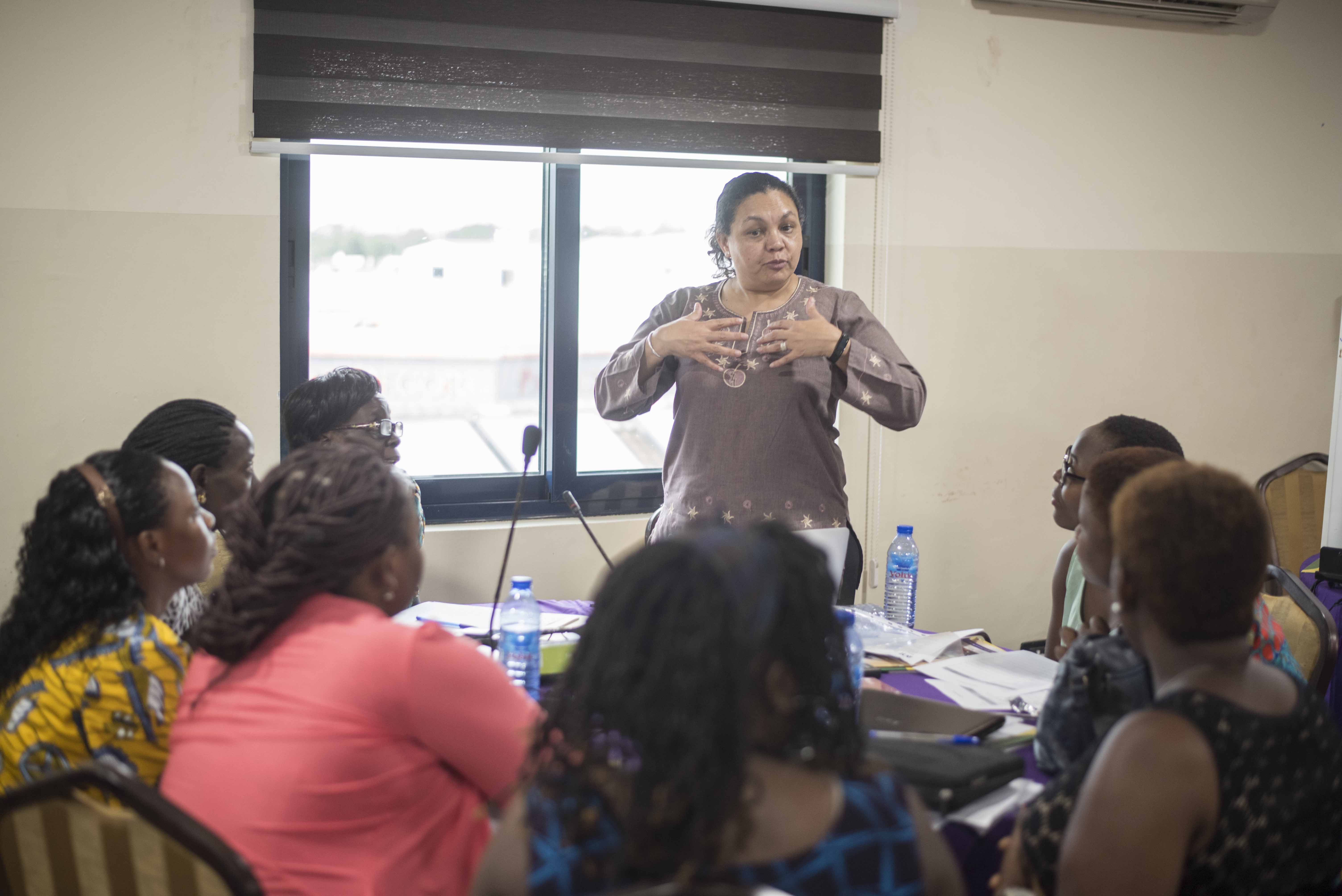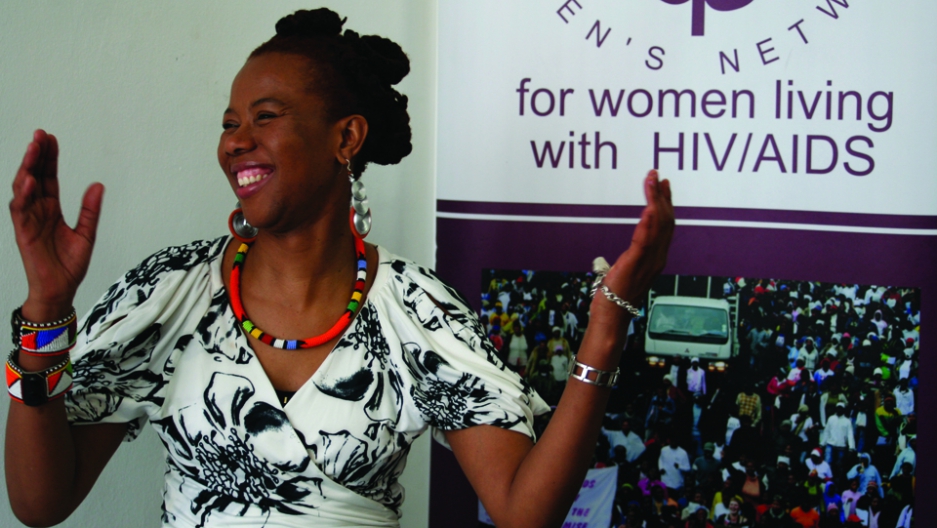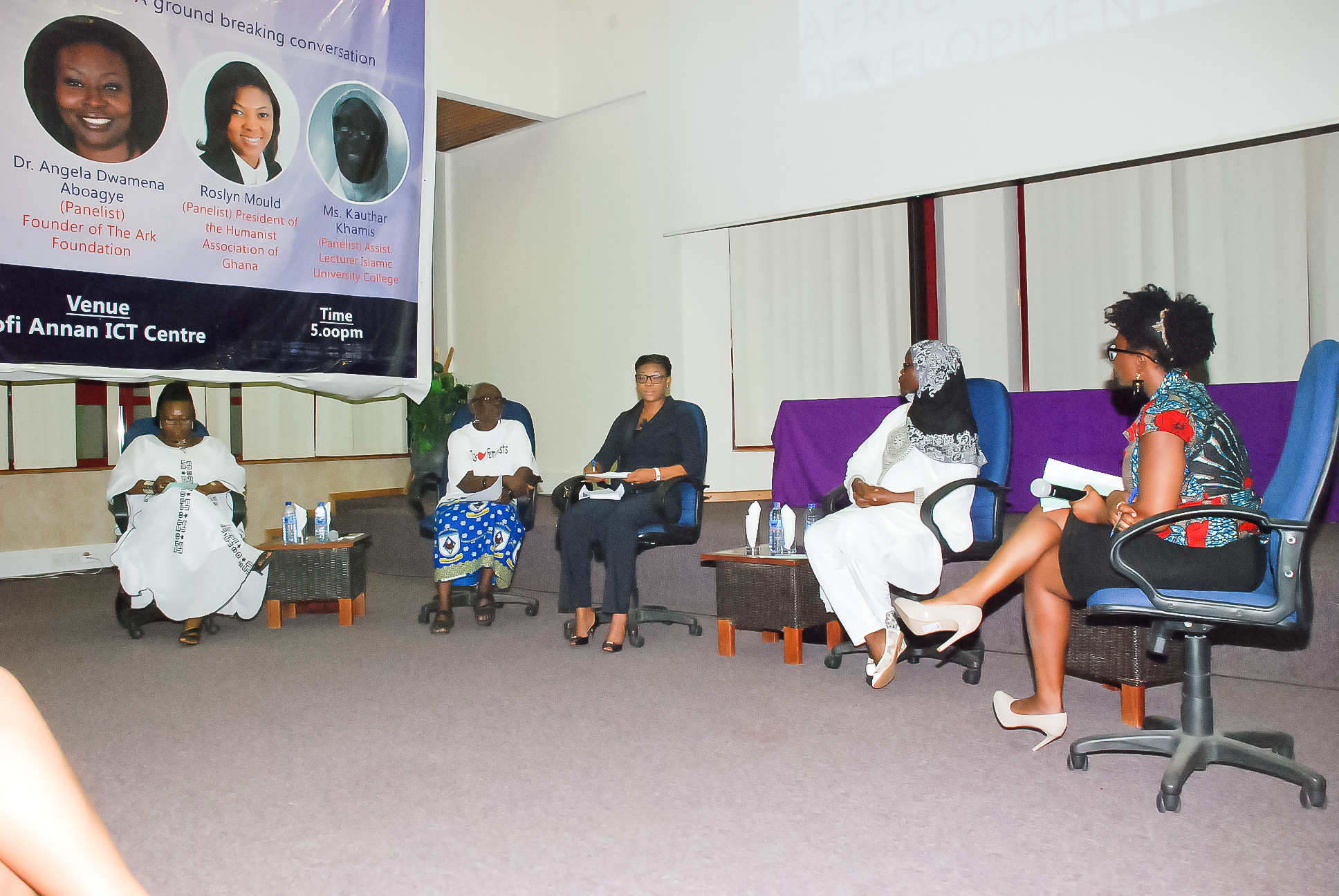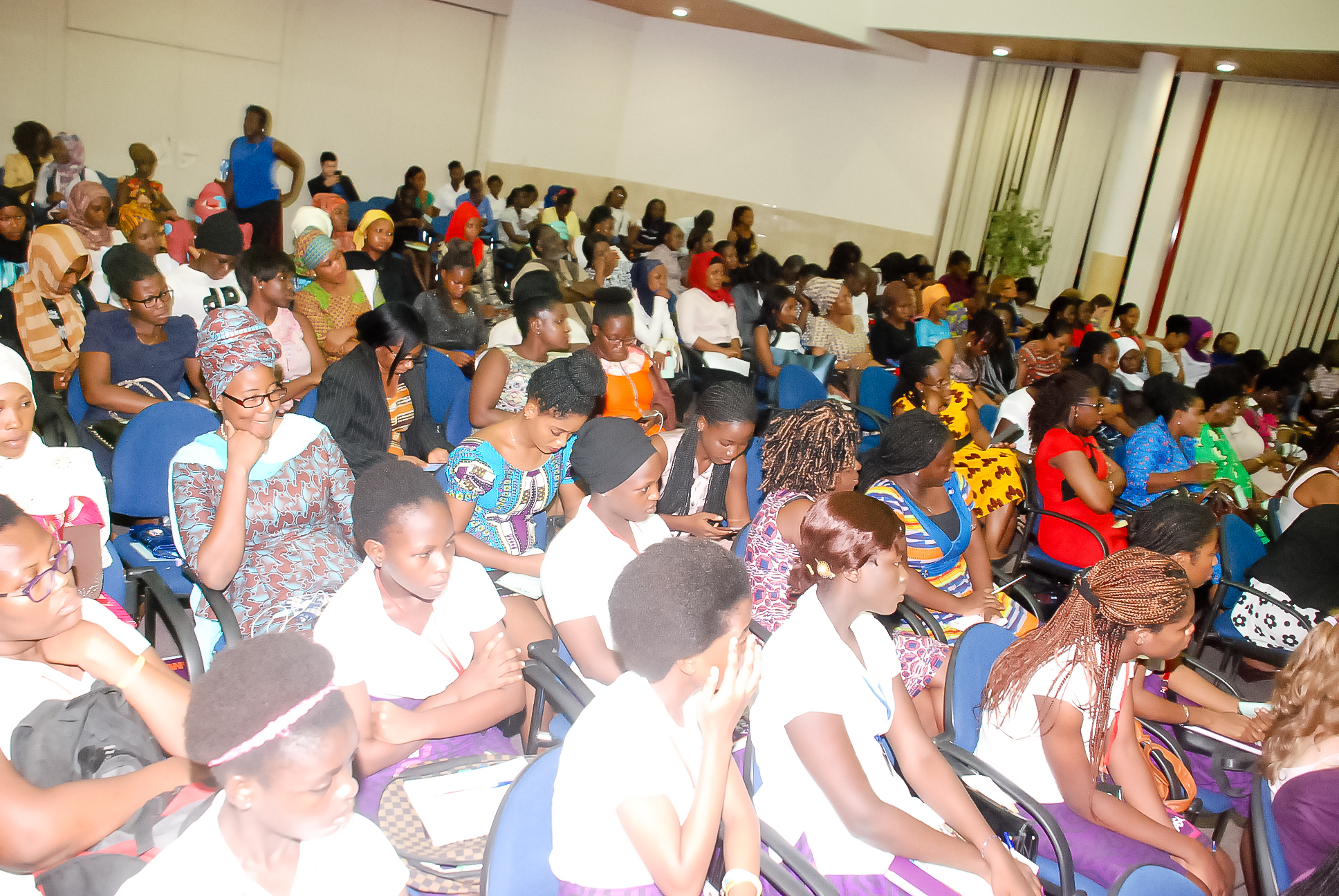by Bisi Adeleye-Fayemi
I have just returned from Accra, Ghana, where I went to attend a panel discussion on African Women and Philanthropy, to mark the 15th anniversary of the African Women’s Development Fund (AWDF) the first Africa-wide grant making foundation. I co-founded AWDF in 2000 with Joana Foster (Ghana) and Hilda Tadria (Uganda), and we began operations in 2001. The panel also featured Leymah Gbweh, the 2011 Nobel Peace Laureate. I have a long history with Leymah, dating back to the period when Liberia was going through a civil war. Leymah has founded a number of initiatives over the years to address peace, security and governance issues, and AWDF has supported all of them.
At the panel discussion, the first question we were asked was about our earliest recollections of acts of philanthropy. For me, it was my parents. I believe that most Africans get immersed in cultures of giving from an early age. I grew up observing my parents helping family and friends with contributions towards school fees, vocational training, medical expenses and personal milestones such as weddings and funerals. They gave financial support, material assistance and provided accommodation. I therefore understood, like many others who had a similar upbringing, that no matter how much or little I had, there was an obligation to assist others.
My mother was always giving something to someone. I watched her give away money, clothing, foodstuff and her exquisite collection of dishes. I saw her give advice and support to women in the neighborhood. She would take in women in distress and offer them a shoulder to cry on and give them sound counsel till they could get back to the rigours of life. From my mother, I learnt the value of solidarity with other women, and the importance of being your sister’s keeper.
My entry point into institutional philanthropy was through my involvement as the Executive Director of Akina Mama wa Afrika in London (AMwA) (1991-2001) as well as Comic Relief, UK. AMwA was a development organisation that supported African women in the UK and Europe, as well as women’s movements in Africa. In 1996, I started raising funding for an African Women’s Leadership Institute, an AMwA program which was to be a regional networking and training forum for young African women – I was still young then! I was very alarmed when I got a letter from a European funding agency (after eighteen months of waiting) declining to fund the leadership institute. What upset me was not the No but why they said No.
According to them, African women’s priorities were food, shelter, livelihoods, etc., and not leadership development. I could not understand how a group of people in Europe, no matter how well meaning they were, could decide what African women needed. I went on to raise significant funding for the leadership institute from other sources and today, the AWLI has trained over 6,000 women leaders across Africa. It is interesting to note that a version of the very project that was deemed unworthy of funding showed up as a project of one of the funding agencies who had received the proposal from us a year later! The lesson I learnt from this, after being awakened from my innocence, was that other people had a better idea of how African women’s leadership could be encouraged, anyone other than African women themselves.
This is the motivation that fueled the establishment of AWDF, as a space that would mobilise and disburse resources to women’s organisations across Africa. We wanted to provide African women’s movements an opportunity to engage in initiatives that would raise the status of women, with needs and priorities determined by them. We wanted to fund initiatives that would transform women’s lives and not simply uphold the status quo. The experience of co-founding AWDF and serving as its Executive Director for the first ten years has been one of the most fulfilling of my life. In the early days of AWDF, as I embarked on the journey to establish AWDF as a reputable philanthropic organisation, I discovered that it was not feasible to make the case for funding to one entity in Africa without taking into consideration the context within which people were making decisions and the politics of international donor funding. I found myself in spaces where, in the early days, I would be either the only African in the room or the only vocal one. I would hear things like ‘ We would like to fund in xyz country but we don’t know who to support’ or ‘We have a lot of money to give away for xyz thematic issue but we can’t find the right partners’. Of course I found a lot of these assertions patronizing and insincere, masking an ambivalence about African capacity to manage and deliver on programs, and to be trusted with resources, but I decided that the best way forward was dialogue, advocacy and setting an example.
Today, AWDF has grown from a handful of institutional donors in 2000 to a large network of institutional, corporate and individual donors, with over $25 million in grants made over the years to at least 1,200 women’s organisations in 42 African countries. AWDF also has an endowment fund invested in real estate, fixed deposits and the money market. From a staff of four in 2001 when we made our first grants, the organisation now has a staff of up to twenty-five. Our grants have been used to enhance women’s livelihoods and raise them from poverty, to empower girls, pass legislation, train and empower women in decision making to mention just a few. We have also played a key role in the strengthening of key women’s networks on the continent. The fact that AWDF is acknowledged as a credible organisation with a track record of integrity, success and achievement is an accomplishment to be deeply appreciated. AWDF’s story is a gift to African civil society. It is possible to have an Africa based and Africa led grant making institution that walks its talk, and aspires to the best foundation practices anywhere in the world. In the universe of Women’s Funds and southern-based philanthropic institutions globally, AWDF stands tall as a well-respected role model.
People have often asked me what is so special about philanthropy for women. It is not different from other kinds of philanthropy, because the key issue here is giving. However, what makes philanthropy for women special, is that it comes from a belief system that understands the critical importance in investing in women for sustainable growth and transformative change in our communities. We can do this in different ways, for example through initiatives to provide women with livelihoods, through making them safe from all forms of violence, giving them facilities to enjoy good health for themselves and their children, and giving them a voice in decision making at all levels. These are the ways in which AWDF has supported thousands of women over the past fifteen years. It is work that requires long-term support and involvement, but it also yields results that are unquantifiable in many cases. An empowered girl or woman will go on to have an empowered family, will be self-sufficient, will be able to support her husband better and the community will be better off for it.
It is a very welcome development to see wealthy African philanthropists, male and female, stepping up to add value to the field. What I would like to see more of, is a willingness of these wealthy philanthropists, some of whom have large foundations, to do more social change philanthropy. This way, we can have some impact on the political and socio- systems that keep hindering Africa’s development. Most African philanthropists also do not have a strategy for funding work to promote women’s empowerment and gender equality, beyond social welfare issues. I would like this to change.
During her remarks on the panel in Accra, Leymah Gbowe spoke about a trip she made to the Democratic Republic of Congo (DRC) with a delegation from the Nobel Women’s Initiative in 2014. DRC has acquired a reputation for being the ‘rape capital of the world’, due to the violent conflict that has raged in that country for many years now. At the forum in DRC, woman after woman told stories of what they had endured. Leymah said the narratives of the women would go something like this, ‘When I was attacked and raped by a gang of militia, I wanted to commit suicide. I thought my life had ended. And then the women came. They brought me food, cared for my children and encouraged me’. Or the narrative would be, ‘They killed my husband, took away my son, and raped me and my two daughters. I lost my mind and did not know where I was. Then the women came and they took care of me, prayed for me and gave me the little they had’. Testimony after testimony went on like this, and they all included, ‘Then the women came’. The delegation from the US was made up of donors, journalists, researchers and activists. When it was time to ask questions, they were all about, ‘ So how many times where you raped?’, or ‘Do you still think about the rape?’. Leymah was furious. When it was time for her to sum up the meeting as head of the delegation, she pointed out that they should not miss the true story they had just heard. The story was not about the rape of women in DRC. It was about the solidarity of women, stepping out, stepping up and being there. And then the women came. According to Leymah, this is what AWDF means to her and other African women. We are there to listen, encourage, support and strengthen women’s initiatives. We might not be able to respond to the avalanche of requests we receive, but we try our best within the limits of the resources we have.
The future of African women and philanthropy is very bright. We now need to encourage women to be at the forefront of philanthropic giving for social justice. We give already, to our families, friends, community associations and religious institutions. Women should now be more deliberate, bold and ambitious in their giving. I would like women to work together through professional associations, corporative, networks of women in leadership and so on, to pool resources for transformative change. It is important to raise money to assist with the building of schools, clinics, retirement homes and a wide array of social inclusion programs. We however need to start looking at some of the root causes of these social disparities especially where it concerns women’s well-being. Women should fund awareness and prevention of all forms of violence, women in political leadership, and changing attitudes and behaviours which underpin a culture of oppression.
Congratulations to AWDF. It has not been easy, the journey has been a long, hard, often lonely one, and it still continues. A big thank you to my successor as CEO, the formidable Theo Sowa. Thank you for running with the baton. As we celebrate 15 years of hard work and dreams, we are encouraged by our success and eager for the next chapter. If you love Africa, and you love African women, put your money where your heart is.
Bisi Adeleye-Fayemi is one of the founders of the African Women’s Development Fund, a Gender Specialist, Social Entrepreneur and Writer. She is the Founder of Abovewhispers.com, an online community for women. She can be reached at BAF@abovewhispers.com
This Piece was originally posted on her website, Abovewhispers.com.
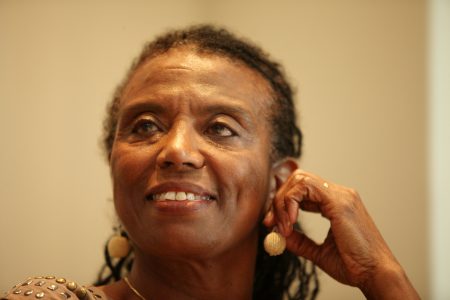

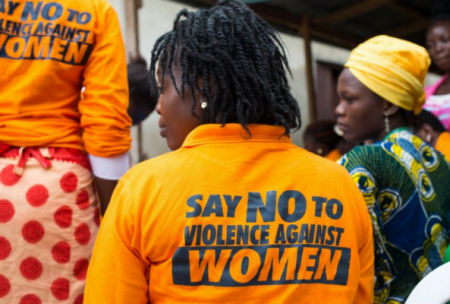
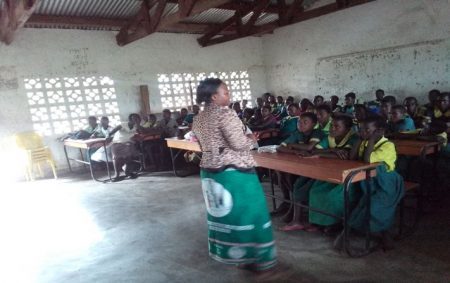
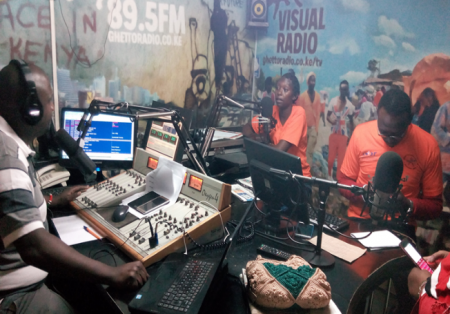
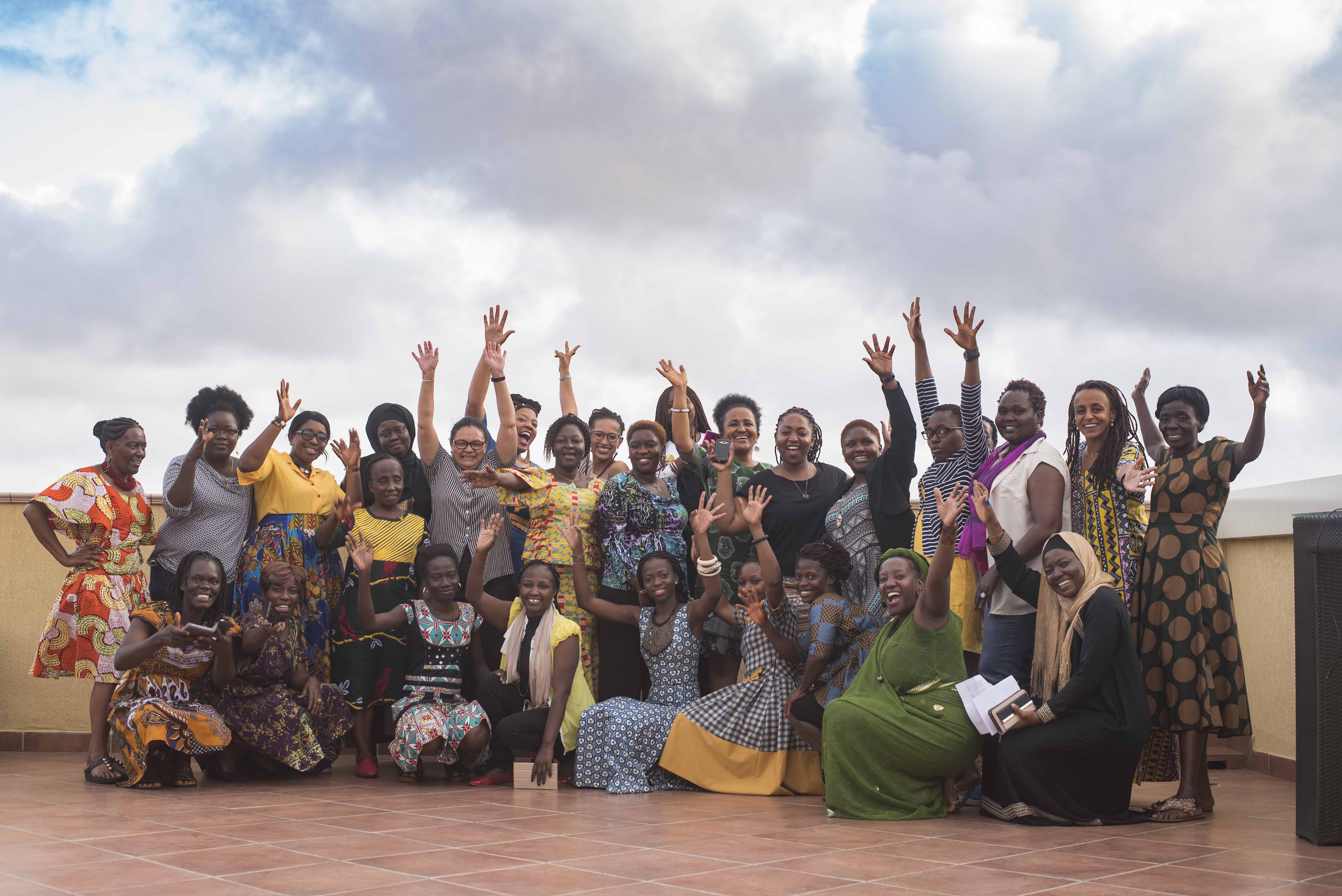 The Manda coaching program is an opportunity for young women in second level leadership to come together and learn from and with each other. On 11th October, the 4th CEO Forum was held in Accra, Ghana and brought together young leaders from across the continent whose organisations are making positive changes within their communities. The leaders themselves proved to be dedicated and innovative and they brought all of this energy with them to the meeting.
The Manda coaching program is an opportunity for young women in second level leadership to come together and learn from and with each other. On 11th October, the 4th CEO Forum was held in Accra, Ghana and brought together young leaders from across the continent whose organisations are making positive changes within their communities. The leaders themselves proved to be dedicated and innovative and they brought all of this energy with them to the meeting.